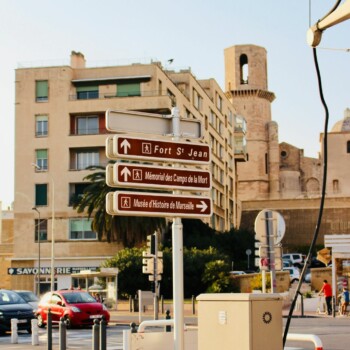Christmas words in English
ADVENT CALENDAR
This specific calendar is used to measure the time remaining until Christmas. The Advent calendar will make the waiting more pleasant, with small gifts hidden in windows, envelopes or boxes assigned to each day left until Christmas. Advent calendars began to gain global popularity in 1920 and have since become an integral part of the holiday season. The idea was quickly picked up by the commercial market, and today you can buy calendars from various brands, with gifts in the form of chocolates, nail polishes, crisps, and so on.
CHRISTMAS TREE
Today, spruce or fir trees are decorated with ornaments and lights, and are clearly associated with Christmas. The Christmas tree came to Anglo-Saxon countries from Germany. Today, talk of Christmas Trees is heard in both the British Isles and the US, but Christmas trees are welcomed into homes all over the world during this special time.
The first mention of Christmas trees is related to St. Boniface and comes from the 8th century. However, we do not hear about them again until the 15th century. There is a documented record from this period describing a Christmas tree decorated with apples, nuts and gingerbread. The first graphic evidence of the existence of Christmas trees comes from the 16th century in an engraving by Lucas Cranach the Elder.
CHRISTMAS CAROL
The meaning of this English Christmas word is similar in different cultural circles where, of course, Christmas is celebrated. Christmas carols are traditional songs sung shortly before Christmas in honour of the newly born Jesus Christ.
It is assumed that the first Christmas carol is the 4th-century Christian hymn “Jesus Refulsit Omnium” composed in Latin by St. Hilary of Poitiers. He composed the anthem after the first recorded celebration of Christmas in 336.
GINGERBREAD
Gingerbread is usually associated with a biscuit in the shape of a little man, although in England and the United States gingerbread houses are also popular. Interestingly, the sources of this Christmas tradition can also be found in Germany.
DOOR WREATHS
Another tradition that is part of the English festive expression relates to the wreaths with which we decorate our front doors during the Christmas season. Currently, this tradition has been secularized, but its roots are related to the Christian religion. The round shape of the wreaths symbolised eternal life, and the holly leaves and fruit were to symbolise the crown of thorns and the blood of Christ.
English Christmas words and traditions – where did they come from?
Some of the vocabulary and English expressions for Christmas can be easily translated into other languages as they refer to common traditions found in almost every corner of the world. There are, however, some English Christmas words with a slightly more hermetic meaning. They are related to country-specific customs. Let’s take a closer look at some English holiday expressions related to the British Isles:
CRACKERS
Crackers in the Christmas context in England mean cardboard tubes wrapped in coloured paper. They are an indispensable element of a British Christmas. Crackers can be found on the festive table next to the cutlery. You have to pull them with your neighbour. The tube is meant to break in half, making a small bang (hence the name). Inside, there is usually a small gift, an unfunny joke which makes everyone groan when it’s read out, and a paper crown which everyone puts on, making the scene very jolly. The crown, of course, symbolises the Magi.
Crackers were invented by Tom Smith, who, after visiting Paris in 1840, decided to bring French, oblong sweets wrapped in coloured paper to British soil. In an attempt to increase sales, the enterprising Tom added special effects to his product in the form of a small explosion that accompanied the “breaking” of the wrapping.
MINCE PIES
These classic English Christmas pastries have been present on British tables since the 13th century, when knights returned to their homes from the Crusades, bringing with them new spices, such as nutmeg and cinnamon. These spices can be found today in mince pies, small Christmas cakes. They are stuffed with a mix of dried fruit and spices which is called mincemeat, even though it contains no meat!
MERRY CRIMBO
Crimbo is an English colloquial expression for Christmas. It is a peculiar abbreviation of the word Christmas and part of the specific British manner of doing things your way and speaking your own way. Brits do that.
PANTOMIME
These are festive musicals with a comedic twist. Kitschy, theatrical performances played by lesser-known celebrities and men dressed up as women. These Christmas shows are derived from the 18th-century comedy dell’arte.
BOXING DAY
This English Christmas phrase is the name of the second day of Christmas in the UK. Where did it come from? It derives from the gifts that the British give themselves on December 26. Initially, in the nineteenth century, on Boxing Day, servants received gifts from their employers, December 26 was also a day off for them.
Christmas expressions in English – version from across the ocean
It’s time for traditions and Christmas words straight from the USA. How is Christmas in the United States different lexically? Let’s check it out!
CHRISTMAS PICKLES
The
Christmas Pickle is a gherkin, but disguised as one of the Christmas tree ornaments. Americans hide it among the other decorations, and the children have to find the Christmas Pickle on the tree. The first child to do this receives a small gift, or may be the first to unpack gifts on Christmas morning as a reward.
The tradition dates back to the end of the 19th century and, like many Christmas traditions, it has connections with Germany. Apparently, this unusual Christmas tree ornament came from Germany to the United States and the importer, the Woolworth chain, needed a marketing gimmick to sell Christmas Pickles to consumers. And in this way, a marketing expert created a tradition that continues to this day.
YULE LOG
This is a Christmas log burnt in the fireplace, and it is a tradition of unclear origins, present not only in the United States, but also in Europe. However, it was the Americans who took the Yule Log to a completely different level by bringing the log to television.
In 1966, the New York City WPIX network launched a 17-second loop of a festively decorated fireplace with flames crackling along the Yule Log. It was supposed to be a “Christmas card” from the president of WPIX. This loop with a burning log, accompanied by Christmas music, was broadcast for three hours. Viewers liked the broadcast so much that it became a tradition. Today, the Yule Log version by famous comedian Nick Offerman has over 3.6 million views on YouTube.
UGLY CHRISTMAS SWEATERS
Ugly Christmas sweaters are quite a recent tradition. It is cultivated in many parts of the world with greater or lesser verve, but its roots should be sought in North America. However, it is not the Americans, but the Canadians who are responsible for the ugly sweaters. Apparently, these peculiar sweaters were born as a party trend in Vancouver in 2001, and from there ugly sweaters spread all over the world.
COOKIES AND MILK FOR SANTA
It was Norse mythology that first mentioned the treats for Santa Claus and his reindeers, but in the USA a bit of sweetness has been added to this tradition. It was the Americans who started to leave cookies and milk for Saint Nicholas and his helpers. They started doing this in the 1930s, during the Great Depression, to show gratitude for their gifts and support in difficult times.
CANDY CANES
The characteristic red and white candy in the form of a curved stick came to the States in the mid-19th century along with German-Swedish immigrants who decorated a Christmas tree in Wooster, Ohio. Today, candy canes are the best-selling sweet treat in December (not counting chocolate products).
The list of Christmas words and phrases in English is longer, of course, but we are sure that you will already be busy with your own Christmas preparations, so let’s end here and wish you a happy holiday. Merry Christmas everyone!



